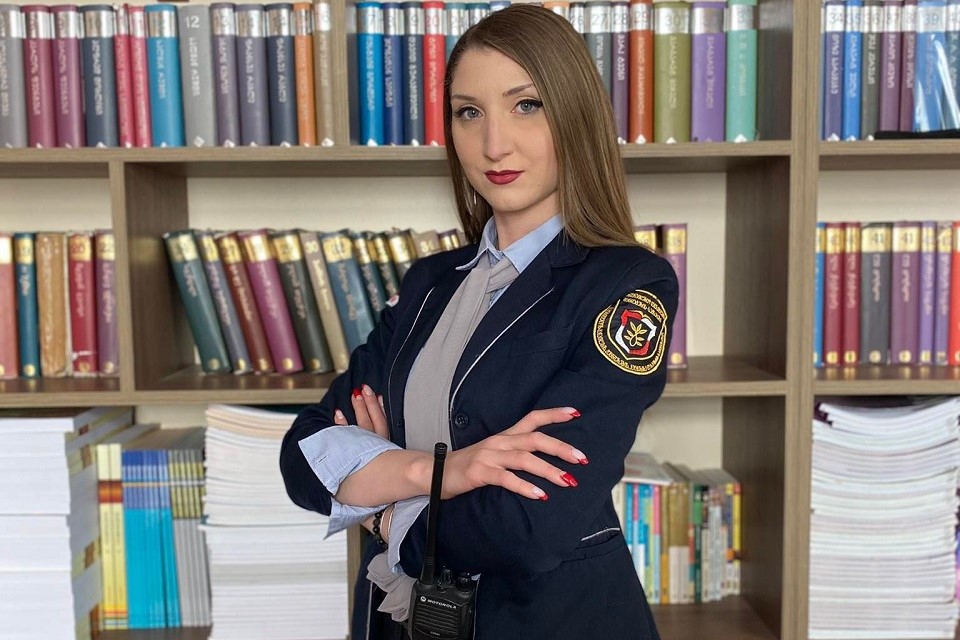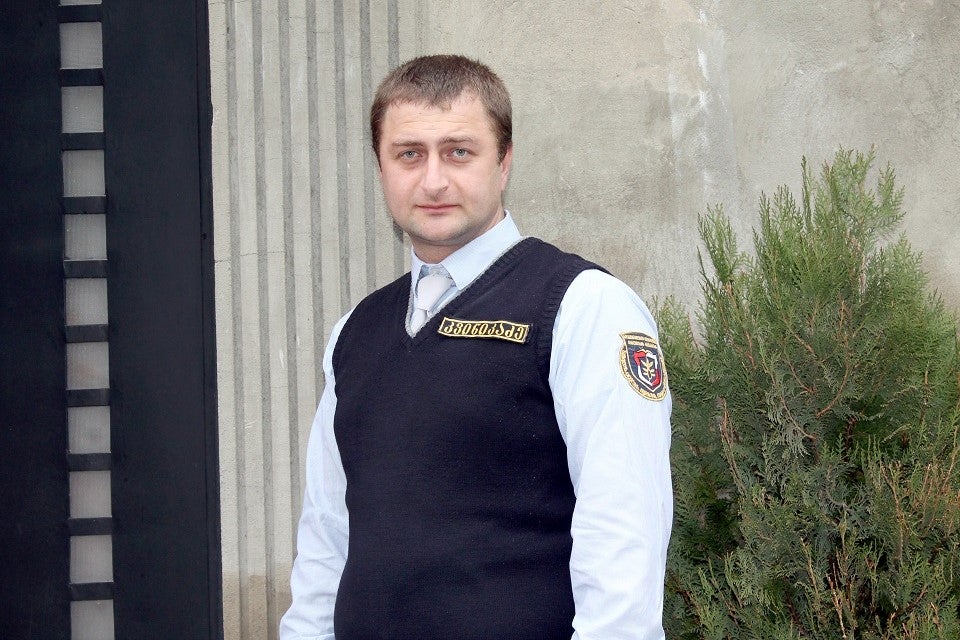Gender equality for safer school environments
Date:

“Every day, I carefully observe each student, their actions and their habits. It is very important not to miss any injuries or behaviours that may indicate domestic violence,” says Lia Misheladze, the 24-year-old resource officer in charge of safety at one Tbilisi public school.
Lia is one of the resource officers to attend a Training of Trainers course supported by UN Women last year and to have completed the special “Gender Mainstreaming in Education: Gender-Based Violence and Domestic Violence” module. After this experience, she now carries out her activities more effectively and shares her knowledge with other colleagues.
“By altering the existing prejudices, we resource officers can play an important role in detecting and responding to domestic violence,” Lia notes. “This training is tailored to our profession. At the same time, it provides detailed and exhaustive information on gender equality and domestic violence. It helps us recognize the first signs of violence or stereotypes, as well as promote gender equality in the school environment.”
This training module for school resource officers is part of the memorandum between UN Women and the Ministry of Education and Science of Georgia signed on 4 April 2022. As part of the module, Lia and the 14 resource officers trained alongside her are now in charge of conducting their colleagues’ training themselves. In total, 150 resource officers have attended the training so far, and the process will continue into the future.

Zurab Kvinikadze, a 33-year-old resource officer and another trainer, is assigned to a public school in Gori. He suggests that since completing the module, he can observe details that would most likely have previously gone unnoticed.
“Unfortunately, sometimes students and maybe even teachers are stereotyped, and therefore they misjudge the situation,” Zurab explains. “For example, they say that ‘girls will not be able to do it’ or ‘it is always the boys who do wrong things at school’. Now that I have a deeper insight into gender equality issues, I can assess their attitudes better, understand the situation and provide appropriate support.” Broadly assessing the role of resource officers, he adds: “We can inform not only students but also teachers and parents. This will help them change their misconceptions, and eventually this will greatly contribute to the creation of a safe and healthy environment for children.”
Notably, the “Gender Mainstreaming in Education” training module is also intended for school principals and teachers. Along with resource officers, teachers were equally instructed in how to conduct training for their colleagues. In addition, the memorandum envisages the creation of a gender mainstreaming platform for resource centres and general education institutions, which will effectively support their obligations regarding child protection referrals.
The ongoing cooperation between UN Women and the Ministry of Education and Science of Georgia is part of the EU-supported “Ending Violence Against Women and Girls in Georgia” project, implemented by UN Women and UNFPA.